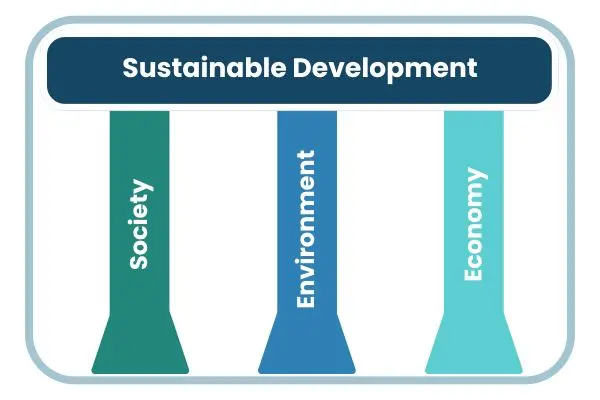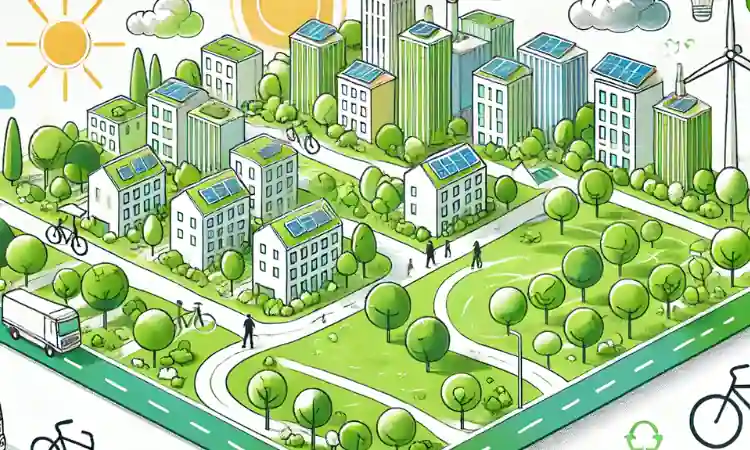Social Sustainability: Benefits and Challenges In Focus
Social sustainability refers to the human and societal component of sustainable development.
While environmental and economic sustainability often dominate discussions, social sustainability emphasises the importance of creating resilient, inclusive, and equitable societies that can support both current and future generations.
Here we’ll cover the key elements of social sustainability, practical considerations and the challenges it faces.
What is Social Sustainability?

Social sustainability refers to the ability of a society to maintain and develop social well-being, cohesion, and capital over time. It involves ensuring that the needs of all individuals are met, promoting social equity, justice, and inclusion.
Key elements of social sustainability include:
Equity and Social Justice: Ensuring fair distribution of resources, opportunities, and privileges within a society. This includes addressing inequalities related to income, gender, race, and other social determinants.
Quality of Life: Enhancing the overall well-being of individuals through access to education, healthcare, housing, and employment opportunities.
Social Cohesion and Inclusion: Fostering strong, inclusive communities where individuals feel connected and valued. This involves promoting participation and engagement in social and civic activities.
Human Rights: Upholding and protecting the fundamental rights and freedoms of all individuals, ensuring dignity and respect for everyone.
Cultural Diversity: Valuing and preserving the cultural heritage and diversity of communities, recognising the importance of cultural identity and expression.
Participation and Governance: Encouraging inclusive and participatory governance where all members of society have a voice in decision-making processes that affect their lives.
Importance in the Broader Context of Sustainability

Social sustainability is interlinked with environmental and economic sustainability, playing a key role to the success of these wider aspects.
1. Interdependence with Environmental Sustainability
Social sustainability and environmental sustainability are mutually reinforcing. A society that values social equity is more likely to support environmental conservation efforts.
For instance, ensuring access to clean water and air, safe housing, and healthy food is essential for both social well-being and environmental health.
Additionally, socially inclusive policies can lead to more effective and equitable environmental management, as diverse communities bring varied perspectives and solutions to environmental challenges.
2. Synergy with Economic Sustainability
Economic sustainability focuses on the efficient and equitable use of resources to support long-term economic growth.
Social sustainability aims to ensures that economic benefits are distributed fairly and that all individuals have access to economic opportunities.
This includes promoting decent work conditions, fair wages, and social protections. When people’s basic needs are met, and they are economically secure, they are better able to contribute to and sustain economic growth.

3. Long-term Resilience
Socially sustainable communities are more resilient in the face of crises, whether economic, environmental, or social.
Strong social networks and inclusive institutions can better withstand and recover from disruptions, ensuring continuity and stability.
For example, during natural disasters, communities with strong social cohesion and inclusive governance are better equipped to mobilise resources and support vulnerable populations.
4. Human Capital and Innovation
Investing in social sustainability enhances human capital, leading to a more educated, healthy, and productive population.
This, in turn, drives innovation and economic development. Education, in particular, is a critical aspect of social sustainability, as it empowers individuals to improve their lives and contribute to societal progress.
5. Ethical Imperative
Social sustainability addresses the ethical dimension of sustainability.
It recognises that sustainable development is not just about preserving natural resources or achieving economic growth but also about ensuring justice, equity, and dignity for all individuals.
This ethical framework guides policies and practices toward more humane and inclusive outcomes.
Practical Applications of Social Sustainability

Implementing social sustainability requires a multi-faceted approach involving various stakeholders, including governments, businesses, civil society, and communities.
Inclusive Urban Planning: Designing cities and communities that promote social interaction, accessibility, and safety for all residents. Urban rewilding reference
Equitable Education and Healthcare: Ensuring that all individuals have access to quality education and healthcare services, regardless of their socio-economic status.
Participatory Governance: Creating platforms for community engagement and participation in decision-making processes, ensuring that diverse voices are heard and considered.
Corporate Social Responsibility (CSR): Encouraging businesses to adopt socially responsible practices that contribute to the well-being of employees, communities, and the broader society.
Social Sustainability Challenges

Resource Allocation: Balancing resource allocation between economic growth, environmental conservation, and social equity can be challenging, especially in resource-constrained settings.
Policy Integration: Integrating social sustainability into broader sustainability policies requires coordination and alignment across different sectors and levels of government.
Measuring Impact: Developing robust metrics and indicators to assess social sustainability can be complex, given the qualitative nature of social well-being and equity.
Social Sustainability: Vital to Future Sustainable Development

Social sustainability is a vital component of sustainable development, focusing on creating inclusive, equitable, and resilient societies.
It is deeply interconnected with environmental and economic sustainability. Its benefits can therefore not be achieved in isolation. But, when pursued in connection with broader sustainability goals, it will enable a bright future that prioritises the well-being of all individuals.
If you’d like to learn more about sustainability, then we recommend you check out the following resources here at Greener Insights:
What is Sustainability: Fundamentals Explained
Economic Sustainability: Benefits & Challenges Explained
Sustainability Trends 2025: Key Predictions to Watch
7 Books About Sustainability To Inspire You
We also have plenty of practical tips and support to improve your sustainability, be it at home, in work or through your career. Check out our Sustainable Living and Green Business pages for further information.







